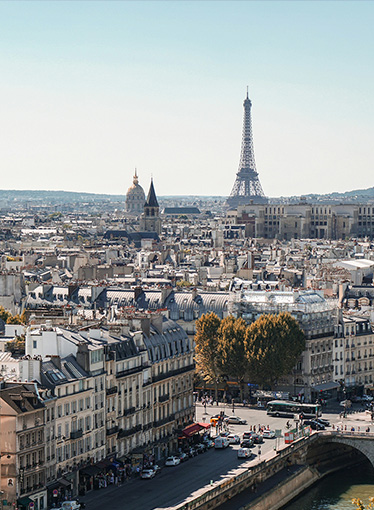Evacuations from High-Risk Locations Call +44 (0)1202 308810 or Contact Us →

Wide-scale Protests Throughout France due to Petrol Taxes
23 Nov 2018
Protests over the increase of fuel taxes have been impacting France for the past few days; these are expected to continue into the weekend with large protests expected on Saturday; leading to disruption throughout the country.Numerous motorways and petrol stations have been blocked by protesters resulting in significant disruption in some areas; including on the Spanish border.Two people have been killed in confrontations while there have also been over 500 injuries; 17 of which are considered serious. Most injuries have come as motorists attempted to break the blockades.
Key Points
- Protests over the increase of fuel taxes have been impacting France for the past few days; these are expected to continue into the weekend with large protests expected on Saturday; leading to disruption throughout the country.
- Numerous motorways and petrol stations have been blocked by protesters resulting in significant disruption in some areas; including on the Spanish border.
- Two people have been killed in confrontations while there have also been over 500 injuries; 17 of which are considered serious. Most injuries have come as motorists attempted to break the blockades.
SITUATIONAL SUMMARY
Civil Unrest: Increased “Gilets Jaunes” (Yellow vests) protests are planned on Saturday, 24 November across France. The announcement came on Thursday after the movement entered its sixth day. The protests across France, initially triggered by increased taxes on fuel, have resulted in widespread disruption in the country with motorways and petrol stations being blocked. Almost every major urban centre in the country has been impacted and there have been at least two fatalities with around 600 injuries and over 120 arrests.
This protest stems from widespread frustration against President Emmanuel Macron’s fuel policies. Tax on diesel is set to rise 6.5 cents per litre in 2019 while taxes on petrol is set to rise by 2.9 cents. Those in support of the protest say the increases will disproportionately affect low income and rural drivers; which is perceived to be in line with the greater theme by Macron’s government to support the wealthy at the expense of the working class.
Turn-out on 21 and 22 November were both significantly lower than on previous days; however, the protests continue and there have been calls for more workers from different sectors to join the movement. The renewed calls for an increase in protests on Saturday are likely to see widespread support. President Macron has called for a tough stance, stating that demonstrators should respect the law. However, the government appears to be struggling to deal with the movement that has no leader and communicates via social media.
SOLACE GLOBAL COMMENT
The unique nature of the protests is proving difficult for the government and the police to manage. The movement does not have official permission to protest; however, the government has stated that it would tolerate a peaceful gathering and allow access to spaces such as the Place de la Bastille or Place de la Republique in Paris, both well-known protest venues. Despite this, it remains unclear where the protesters plan to stage their next demonstrations. By using social media platforms and having no centralised leadership, no one knows where they plan to go, how many will turn up, and what they will do when they arrive.
Around 2,000 rallies were held across France last Saturday (17 November), attracting more than 280,000 people. While smaller protests have continued since, these were not as widespread. However, it is widely expected that the demonstrations on Saturday are going to be a similar size. These are expected to cause widespread disruption; blocking access to motorways and main routes into cities. As a result, motorists and heavy goods vehicles (HGVs) may be caught in lengthy delays; impacting both travel times and logistic deadlines.
Organisers are planning to focus the protests on the main cities in the countries on Saturday. More than 50 percent of the protesters are expected to gather in Paris with the intention to bring the capital to a standstill. The two main airports in Paris, Charles de Gaulle and Orly, may also see access impeded as a result of the unrest. Elsewhere, Avignon, Bordeaux and Strasbourg are also expected to be focal points. Towns across Brittany, as well as areas in Lyon, Jura and Isere, are all expected to see protests. Additionally, petrol stations have already begun to see supplies of petrol or diesel impacted and, while unlikely at this stage, should blockades continue, there could be increased shortages. Monitor, https://penurie.mon-essence.fr/w/ for further details regarding petrol shortages across the country.
SECURITY ADVICE
Civil UnrestModerateTravellers with access to www.solacesecure.com are advised to monitor all alerts regarding the protests in France as well as monitoring relevant media sources. Additionally, ensure that prompt and regular check-ins via the Solace Secure App are also made.
When using roads within and between main cities in the coming days; exercise vigilance and allow additional travel time as protesters are likely to block main routes.
Be aware when driving in the country that main arterial roads may become blocked; where possible, bypass the blockade. Do not attempt to force your way through a protest and only attempt U-turns/reverse if safe to do so. Remain calm and avoid aggravating the demonstrators.
Should you become stuck in traffic caused by a blockade do not attempt to force your way through; the majority of injuries have occurred, and some of the clashes, after drivers have attempted to disrupt the demonstrators.
Consider avoiding main routes such as motorways altogether due to the risk of blockades and demonstrations. Be aware that protesters may also set up blockades in proximity to transport hubs.
Logistic managers should ensure that their drivers are briefed of the situation; including possible blocked routes and route bypassing options.